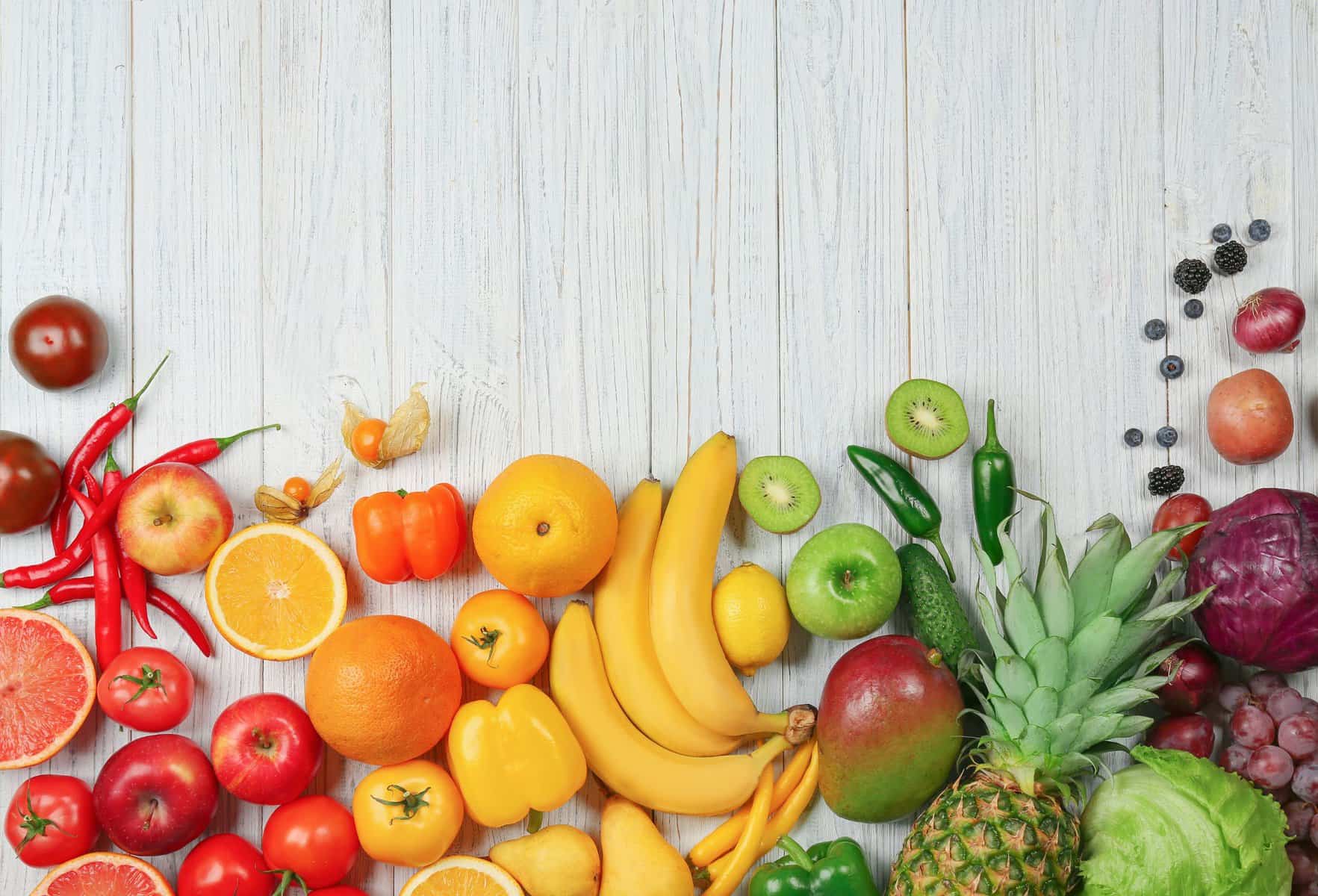
As kids we were told to eat the rainbow as a way of encouraging consumption and variety of fruits and vegetables. As adults, the consumption of a wide variety of fruit and vegetables is still just as relevant. However, as we get older, busier, and have more responsibilities (I.e., potentially have our own children to encourage to eat rainbows), our own nutrition tends to fall by the wayside. As a parent and a dietitian, I understand that ‘eating your fruit and vegetables’ can seem like boring advice. However, hear me out. If you can put this advice into practice consistently in your life you can experience a whole host of other benefits, from bowel health to mental health to women’s health.
Current data suggests only 7% of adults are meeting the recommended serves of vegetables per day, and 50% of adults are meeting their recommended serves of fruit per day.
We may prioritise getting the kids lunches sorted and not even think about packing our own, or work through lunch rather than taking a break or just grab something from the café because you ran out of time in the morning to pack lunch. Or you may turn to comfort foods in times of stress.
I’m not suggesting these are ‘bad’ things to do. A big bowl of pasta with lashings of cheese, a hint of green and a glass of wine may be just what the soul needs on some days. However, if this happens regularly, over time this can be problematic for a few reasons:
- You could be missing out on key nutrients (such as fibre, folate, zinc, magnesium, vitamin A, vitamin C and vitamin E)
- You could be having higher amounts of nutrients that can increase the risk of chronic disease (e.g., excess sodium can lead to high blood pressure)
- You could be promoting inflammation
As we age our bodies accumulate the effects of our lifestyle choices. Kind of like exposure to sun as a kid or teenager, at the time you might get ‘tan’ or get sunburnt and be sore for a few days. But as you get older, you may start noticing changes in your skin – pigmentation, wrinkles, or cancer. Like our skin and sun exposure, our bodies can cope with a small amount of oxidative stress but at a certain point our bodies can no longer cope and start to become unwell.
Inflammation
Inflammation is our body’s normal response to cell injury. For instance, if we get a cut, our bodies ramp up an immune response and send cells to fight infection and help the cut heal. Once healed, your body’s inflammatory response winds back down.
Chronic inflammation, on the other hand, is the ongoing immune response without the injury or infection. This can be problematic because chronic inflammation can cause cell damage and alter function and plays a role in disease development.
Risk factors associated with chronic inflammation include:
- Age
- Diet
- Sleep
- Stress
- Smoking
How can we help our bodies combat inflammation?
Hello antioxidants. I’m not talking about little pills in bottles, I’m talking about the ones naturally found in whole foods.
Now antioxidants aren’t the silver bullet answer to ill health, but they are a fantastic way to support our body’s defences against oxidative stress. Oxidative stress results when there are too many Reactive Oxygen Species (ROS) and/or too little antioxidants in our bodies. ROS are unstable molecules produced by the body that can cause damage to cell membranes and structures, which can lead to inflammation. Normally your body can handle a small amount, but excessive amounts can be detrimental to our health.
While antioxidants aren’t a cure-all, they do have a role to play in reducing oxidative stress. These nifty compounds are found in plant foods (fruit, vegetables, nuts, seeds and spices) and some meats (fish, beef, poultry and seafood). They are often what give fruits and vegetables their colour.
Food first
Before you rush out and buy an antioxidant supplement that promises to help you feel more energised, boost your immune system, and reduce free radical damage, it is important to get your foundations right:
- Are you getting adequate fruit and vegetables across the day?
- Are you opting for wholegrains rather than highly refined carbohydrates?
- Are you drinking enough water?
- Are you getting enough sleep?
- Are you physically active?
In studies, isolated antioxidants don’t always show a health benefit. This may be because antioxidants tend to work best in combination with other nutrients, chemicals or other antioxidants present in foods. Thus eating the whole food is always better than a supplement.
Practical tips:
- Try to get a range of different colours on your plate daily. A strategy could be aiming for 3 different colours of vegetables at a meal.
- Fresh vegetables may not always be realistic for everyone, so opting for frozen or canned can be a good way to get them in. Try frozen mixed vegetables or steam fresh bags, or throw some frozen spinach cubes into your next soup or canned vegetables into a stew.
- Instead of always buying baby spinach, mix it up and grab mixed salad leaves or kale slaw. There are so many options out there!
- Incorporate meals such as poke bowls, salads, burrito bowls or tacos in your usual rotation. These are fantastic ways to get in different coloured vegetables into your day.
- Mix up your usual salad – try canned artichokes, edamame beans, sliced beetroot or 4 bean mix.
- Cut up fruit or vegetables for snacks.
If you would like individualised advice on how you can reduce inflammation through your diet, book in to see one of our experienced dietitians today!



